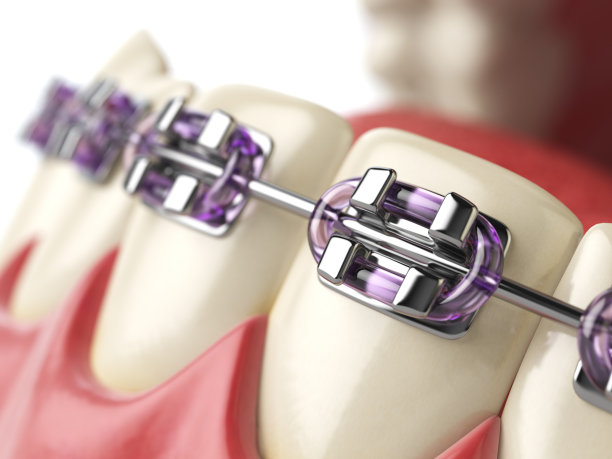Essential Precautions and Aftercare Tips for a Successful Dental Filling Procedure to Ensure Optimal Oral Health
Summary: Dental fillings are crucial for restoring teeth damaged by decay or injury, ensuring optimal oral health. To achieve successful results, its essential to consider necessary precautions before the procedure and follow proper aftercare post-treatment. This article outlines vital advice on preparation, the filling process, and essential follow-up care. By adhering to these guidelines, patients can enhance their oral health and prevent complications, ensuring their dental fillings last and contribute to their overall well-being.
1. Preparing for Your Dental Filling Appointment

Preparation plays a significant role in ensuring the success of your dental filling procedure. First and foremost, its essential to communicate openly with your dentist about any medications you’re currently taking, including over-the-counter drugs and supplements. This information is crucial as it can help the dentist identify any potential interactions that could affect the procedure or healing process.
Secondly, consider scheduling your appointment during a time when you can afford to take it easy afterward. Dental fillings, particularly if anesthesia is used, may leave you feeling groggy or numb, which can complicate tasks like driving. Arranging for transportation can alleviate this concern and help reduce stress leading up to your appointment.
Finally, prepare mentally for the visit. A positive mindset can help alleviate anxiety associated with dental work. Familiarize yourself with what to expect during the procedure by discussing it with your dentist beforehand, thus enabling you to approach the appointment with confidence.
2. Understanding the Dental Filling Process
The dental filling process typically involves several key steps, starting with the dentist conducting a thorough examination followed by administering local anesthesia. This ensures that any discomfort is minimized during the procedure, allowing the patient to feel at ease.
Once the area is numb, the dentist will proceed to remove any decayed or damaged material from the affected tooth. After the cavity is thoroughly cleaned, the dentist will prepare the space for the filling material. Its crucial to follow the dentists recommendations regarding the type of filling—whether composite, amalgam, or another option—as each has distinct benefits based on individual needs.
After placing the filling, the dentist typically shapes and polishes it to ensure it fits comfortably within the bite. This attention to detail is vital, as it can prevent future problems such as misalignment or excessive wear on neighboring teeth. Understanding this process provides reassurance and prepares you for the necessary steps following the filling procedure.
3. Essential Aftercare for Dental Fillings
Post-procedure care is just as important as preparation and understanding the filling process. Initially, it’s advisable to avoid consuming hot foods and beverages for at least 24 hours to allow the anesthesia to wear off completely. Numbness can lead to accidental burns if hot substances are ingested.
Additionally, be cautious about chewing on the side where the filling was placed. Depending on the type of filling used, there may be a temporary period where eating can affect the longevity of the work done. Opt for softer foods that don’t require excessive chewing and aid in preventing damage to the new filling.
Finally, maintain good oral hygiene by brushing gently and flossing carefully around the filled tooth. This prevents plaque accumulation and ensures that your dental work remains in optimal condition. Regular dental check-ups will also enhance the longevity of your fillings, ensuring continuous monitoring and proactive management of your oral health.
4. Recognizing Important Signs and Concerns
Being aware of any unusual signs or symptoms after getting a dental filling is crucial for long-term oral health. If you experience heightened sensitivity, pain, or swelling in the area, contact your dentist immediately. These symptoms could indicate complications and prompt intervention may be required to address any issues effectively.
Its also essential to observe the filling itself. If you notice changes in texture, color, or if it feels loose, it’s advisable to schedule an appointment with your dentist. Regular check-ups can help detect problems before they escalate and allow for necessary adjustments or repairs.
Lastly, being mindful of your oral habits is crucial. Habits such as grinding your teeth or chewing on hard objects can jeopardize the integrity of your fillings. Discuss these behaviors with your dentist, who can provide tailored advice and solutions, such as mouthguards, to protect your dental work.
Summary:
In conclusion, understanding the essential precautions and aftercare tips for a successful dental filling procedure is vital for maintaining optimal oral health. Proper preparation ensures a smoother appointment, while knowledge of the filling process helps alleviate anxiety. Aftercare is critical for preserving the integrity of the filling, and awareness of signs requiring attention can prevent complications. By following the outlined recommendations, patients can enhance their dental health and enjoy the benefits of effective fillings.
This article is compiled by Vickong Dental and the content is for reference only.



